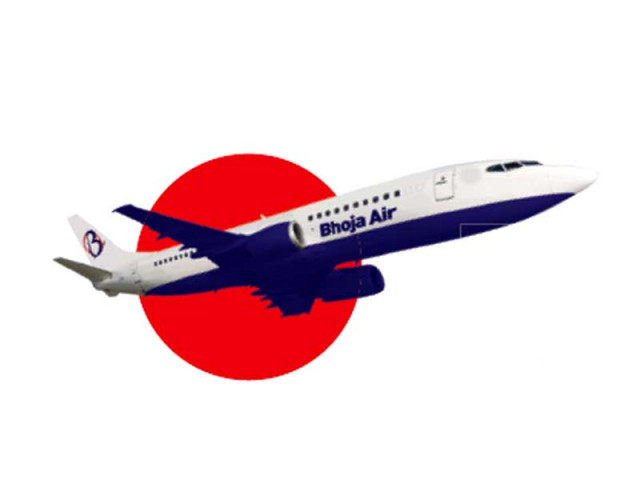The culture of secrecy and victims’ right to know
Industry officials and affectees wonder why air crash probes are never made public.

Major passenger aircraft accidents in quick succession over the last two years have forced many stakeholders to revisit safety standards in the aviation industry. After general outcry from the civil society and the public, aviation industry experts are now expressing a sincere willingness to improve safety standards in one of the most important industries of the country.
But while aviation experts may see some light at the end of the tunnel, the general public continues to perceive indifference on the part of successive governments. Most affectees believe that investigations of the Airblue (2010) and Bhoja Air (2012) accidents will never reach a lucid, logical conclusion.
Realising that there are certain very persistent barriers to achieving betterment, now aviation experts, too, have become increasingly vocal about a lack of clarity in investigations and aviation safety standards prevalent in the country.
Political interference and dangers for whistleblowers
“There has been a traditional lack of transparency and a culture of secrecy surrounding aviation investigations in Pakistan,” says Air Marshal (Retired) Saleem Arshad, who has also served as the Director General of the Civil Aviation Authority (CAA), while talking to The Express Tribune.
Arshad complains that since the birth of the nation, Pakistanis have, in general, been forced to live in an environment of secrecy and insecurity. He believes that this has now become a part of our culture.
“This culture of mystery discourages the culture of openness,” he protests. “When an authority tries to disclose something important, the forces of vested interests come into action and try to remove that person from his post.”
“Hence, whenever aviation accidents occur, important people at powerful organisations try to brush the matter under the carpet. The government should publish all investigation reports so that we can point out who did what, and what resulted in the disaster,” he stresses.
“There are enough aviation experts in Pakistan who have relevant expertise to tackle the problems at hand,” responds Arshad, when told that the general perception is that there is a dearth of aviation experts in the country. “The problem is that such competent experts get discouraged when their honest opinions are bypassed on the grounds of political pressures. They usually never come to the front.”
Lack of public trust on accident investigations
With public perception on the impartiality of investigations at an all-time low, aviation experts are urging the government to make systems transparent and introduce a better system of accountability.
Recently, Pakistan’s national carrier – Pakistan Internation Airlines – organised a seminar on aviation safety standards in Karachi, during which most experts highlighted general pessimism and mistrust of government-sponsored investigations.
While speaking in the seminar, Wing Commander (Retired) Naseem Ahmed said that the public perception of investigations in Pakistan is extremely negative due to a lack of impartiality.
Ahmed was among the participants who repeatedly underscored the need for a strict regulator in the country. He urged the government make CAA’s responsibilities clear and transparent, so that safety issues and impartial investigations could become a top priority.
“The general pessimism in public opinion about aviation investigations is not unfounded,” agrees Arshad; adding that when families see that the government is deliberately trying to hide facts during the course of a probe, they soon lose trust.
Growing pressure from media and civil society
Aviation industry officials believe that the media has played an important role in recent years to push the government towards transparency.
However, they also acknowledge that despite huge pressure, the incumbent government is not willing to publish complete reports on the Airblue crash of 2010 and ongoing investigations on the Bhoja Air incident this year.
But industry officials are hopeful that growing pressure from media and civil society will help improve the situation, and the government will one day be forced to reveal all investigation reports that have not been made public yet.
Published in The Express Tribune, July 16th, 2012.



















COMMENTS
Comments are moderated and generally will be posted if they are on-topic and not abusive.
For more information, please see our Comments FAQ